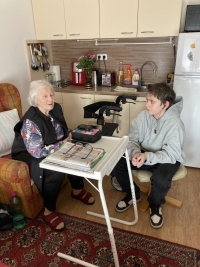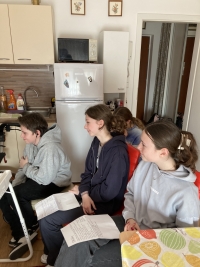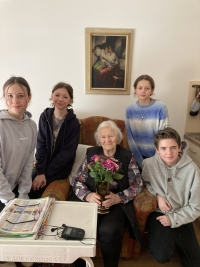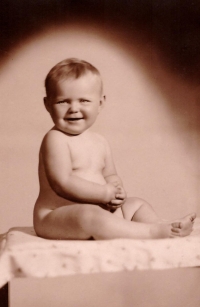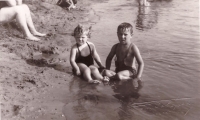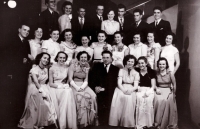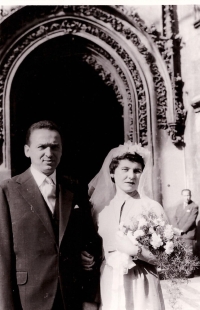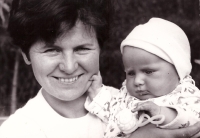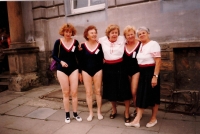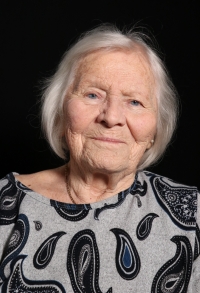I only started to feel scared when they began shooting at us with a machine gun
Download image
Jarmila Bílková, maiden name Dražilová, was born on May 20, 1933 in Prague. Her first years of childhood were spent in the Old Town of Prague, in the Josefov district, where her father Antonín Dražil got a job as a janitor together with a service apartment at the Ministry of Agriculture. During the Protectorate, he lost his job as a Czechoslovak Legionnaire and the family had to move to Holešovice in Prague. Jarmila recalls the fears of her parents, especially during the Heydrichiad, when the Gestapo arrested Czech patriots, including her father, at the Ministry. Stronger than the fears of the Nazis, however, was the long-standing friendship that connected the entire family of Antonín Dražil with his siblings Matylda and Vítězslav Reiner. Before the war, Vítězslav Reiner was the managing director of the then famous Wolf and Schleim department store. The Dražils supported both siblings of Jewish origin until the fateful day when they were forced to board a transport to Auschwitz. The gifted Jarmila attended private singing lessons from the age of six and only a short time later became a member of the Kühn Children’s Choir. On February 14, 1945, during one of the rehearsals at the then Czechoslovak Radio, she experienced the great air raid on Prague. But her most intense childhood memories are connected with the Prague Uprising. On the morning of May 5, 1945, the then twelve-year-old Jarmila, together with her cousin of the same age, went for a walk through Prague. They did not return home until 9 May, when the war was officially over and the shooting in the capital had stopped. Jarmila thus witnessed many tense moments connected with the liberation of Prague. She spent four nights in the basement of the Ministry of Finance, where the Red Cross had set up a makeshift shelter. Among other things, she experienced the one-day occupation of the ministry by German soldiers, on whose orders she was forced to clear the barricade at Prague’s Klárov district, and on the morning of May 9, she saw the first Soviet tank arriving in Prague damaged at the same place. She also remembers the post-war events, the Red Army soldiers, the removal of Germans from Prague’s Holešovice and Letná, the ceremonial return of President Edvard Beneš from exile and the military parades on Old Town Square. On February 25, 1948, as a secondary grammar school student, she took part in the student march to Prague Castle. She graduated from a grammar school and completed a two-year extension course at a chemical industrial school. She worked as a laboratory technician for her entire professional career. She was married twice, her second husband was the football player František Bílek. Now (2025) she lives in Holešovice, Prague. The filming of memories was made possible thanks to the support of the International Visegrad Fund.
